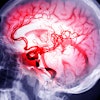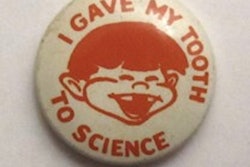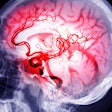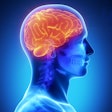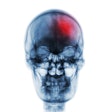
Researchers found a link between tooth symptoms and a decline in cognitive function among older Chinese adults in the U.S., according to a new study.
However, they did not find a link between cognitive changes and gum problems. Their study was published in the Journal of the American Geriatrics Society (August 12, 2019).
The researchers of the retrospective epidemiological study used data from the Population Study of Chinese Elderly in Chicago (PINE), which began in 2011 and looked at the growing older Chinese adult population in the U.S. Between 2011 and 2013, data were collected from adults 60 and older via in-home interviews conducted by the PINE study team.
Of the approximately 2,700 participants, almost 48% reported having teeth symptoms, nearly 19% reported having gum symptoms, and almost 16% reported having both at the start of the study. Teeth symptoms were not defined because of the way the data were collected and presented by the PINE team.
Adjusting for sociodemographic and health‐related characteristics, the researchers found that participants who reported having teeth symptoms experienced a decrease in both global cognition and episodic memory (the ability to retain new information).
They found significant associations between baseline teeth symptoms and change in episodic memory. This change is commonly seen in older individuals with mild cognitive impairment, making them more vulnerable to Alzheimer's disease, the authors noted.
Though the findings offer a glimpse into this population and its health issues, the study had its share of limitations. The follow-up time of less than two years may have been too short to identify cognitive changes, according to the authors. In addition, the subjective, self-reported oral health symptoms may not have connected well with direct clinical evaluations, and factors such as the use of preventive oral health services, including dental insurance, were not recorded.
However, the study findings help provide a clearer understanding of these issues and a focus for dental care community outreach programs, the researchers concluded.
"Dental care community outreach programs should focus their information on practical ways to prevent oral health problems and provide information on accessible treatment options," wrote the authors, led by Darina Petrovsky, PhD, RN, of the New York University Rory Meyers College of Nursing in New York City.

